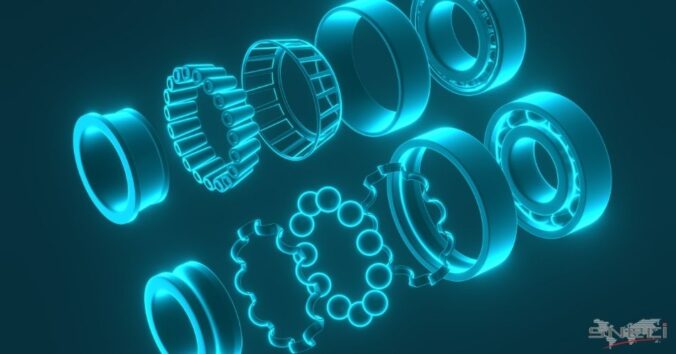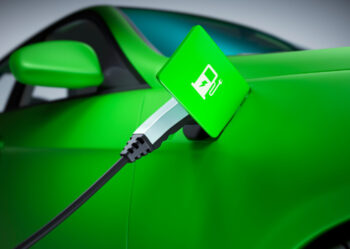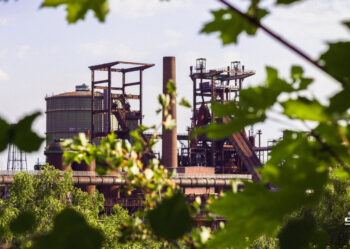Increases in raw material prices have a serious impact on automotive suppliers

Energy costs, raw materials, logistics costs… price explosions are hitting equipment manufacturers like never before. And this unprecedented inflation is having serious repercussions on the entire industry. The first example is the cost of an electric vehicle, which has risen by €4500 in production compared to 2020.
This is why suppliers are now trying to pass on some of their cost increases to manufacturers, but contractually they are limited.
What will be more expensive for the manufacturers, will be more expensive for the end consumers. It’s a price spiral that never ends. Let’s find out together what the real impact is for the automotive suppliers in Europe.
Difficult negotiations with manufacturers :
Negotiations with manufacturers against the backdrop of rising raw material costs are becoming increasingly difficult, while suppliers alone can no longer support these increases.
Jean-François Le Bos, president of the FIEV, explained at a meeting organized by the Association of Technical and Economic Journalists (AJTE): “The most important problem we have to face remains the passing on of price increases and the defense of our interests vis-à-vis the public authorities. On the first point, our wish is to set up indexation systems in the contracts, which are generally signed for a period of 5 years…”.
Indeed, manufacturers concerned about their interests believe that it is the suppliers who must take charge of this increase in costs, which is not viable for the suppliers. All these increases cannot be assumed by only one of the parties and the FIEV plays the role of intermediary especially with manufacturers who sometimes remain intractable in these discussions concerning the framework of the negotiations.
Let’s remember that equipment manufacturers account for between 60 and 80% of the manufacturing price of a vehicle and that in the past, prices were guaranteed for a certain period, one year, two years, three years. But today, prices can vary by the week.
It is important to remember that each car manufacturer has different contracts with each supplier. For example, Volkswagen alone has nearly 60,000 suppliers worldwide. One can imagine that each contract is individually designed and the mess that this creates in terms of negotiation and cost repercussions
Equipment manufacturers are thus impacted and must react with agility because the bill looks like it will be high.
Equipment manufacturers strongly impacted :
With price increases and inflation, the quarterly accounts of Valeo, Plastic Omnium and Faurecia reflect the drop in activity in Europe in March 2022 (https://www.wiwo.de/) to which the conflict in Ukraine and Chinese confinements to fight against Covid-19 have been added.
Plastic Omnium’s revenue fell by 16.7%, with production stoppages in France at its customers Stellantis and Renault, largely due to semiconductors, and in Germany and Eastern Europe, with stoppages at Volkswagen, Daimler and BMW. However, good performances in other regions such as North America enabled it to achieve overall sales of 2.1 billion euros (-5.5% year-on-year).
For their part, Valeo and Faurecia fared slightly better with a -7% drop in “original equipment” sales in the Europe-Africa zone, which accounts for almost half of their business.
For his part, Michael Frick, head of the equipment manufacturer Mahle, explained at a press conference at the end of April 2022 that the additional costs related to raw materials and freight would represent nearly 300 million euros.
For Mahle, aluminum is one of the most important raw materials used in engine components and thermal management systems, since the cooling fins of the cooler, for example, are made of aluminum. In the second half of 2021, aluminum has become almost 80%” more expensive and freight rates have doubled.
For its part, Continental expects supply and logistics costs to increase by about 3.5 billion euros in the year 2022. At the Annual General Meeting on April 29, Nikolai Setzer, CEO of Continental, explained: “Procurement costs are rising. Especially for oil-based raw materials (such as tires) but also logistics costs.
For Schaeffler, sharp price increases are one of the major challenges the supplier has faced since the second half of 2021 with, in particular, a steel price that has doubled compared to the first half of 2021.
The cost of an electric car has increased by 4500€ during production :
The manufacturing of an electric vehicle has also increased as in March 2022, the average raw material cost of a U.S. thermal car was about €3,500 which is double the price compared to early 2020 according to AlixPartners consultants.
The impact is even bigger on electric vehicles, as by March 2022, the cost of raw materials for an electric vehicle built in Europe had increased by the equivalent of about 4,500 euros per car, representing a 138% increase compared to January 2020.
Raw material prices have risen by up to 40% in recent months, and in some cases like nickel it is even more. As a reminder, nickel is a key ingredient in Li-ion batteries.
Overall, the cost of raw materials for an electric car built in Europe would now amount to nearly 7,500 euros, which inevitably puts automotive suppliers under pressure.
Volkswagen explained that raw materials are mainly purchased from suppliers via their business processes and that the suppliers have ongoing contracts, so the rising costs of raw materials cannot be passed on entirely to the car manufacturers.
In a press conference at the end of April 2022, Mahle explained that in the past, material escalation clauses were only signed with specific, identified and selected customers and raw materials. However, the burden on Malhe due to energy, customs duties, special freight and material costs has exceeded the level of the escalation clauses.
AlixPartners explains that these clauses currently exist but are mainly for metals and almost never for energy or logistics costs.
For example, this is one of the reasons why the supplier Schaeffler has contractually recorded most of its steel purchases partly linked to an index, allowing the company to charge the customer more in case of an increase in the index. Schaeffler has also introduced price adjustment clauses with customers, although not for all contracts.
Adjustment clauses on energy and logistics :
In addition to the increase in raw materials, the increases related to logistics, freight and energy costs add difficulty to the suppliers in this price battle.
It is important to know that in general there are no adjustment clauses linked to logistics or energy allowing to pass on these increases, which is not normal when we know that for oil, the price is directly passed on to the consumers at the gas station.
The increase in energy costs has a more global impact since it increases not only the purchase price of the material but also the costs of transport and logistics and it is the global maritime freight that is most affected.
Indeed, sea freight has risen by up to +300%, especially on individual routes, which means that some suppliers are thinking about how to repatriate their material to Europe, as is the case with Mahle, which buys most of its material at regional level.
Bosch, for example, explained that it was impacted by higher energy costs, but more importantly by higher prices for copper, aluminum and steel. So around the world, Bosch’s purchasing and logistics teams are working with suppliers and customers to find solutions to achieve competitive pricing and maintain supply chains despite the many challenges. The solution must be a win-win to be viable, which is why it is important to involve suppliers and customers.
According to AlixPartners, prices and therefore costs per car are unlikely to return to pre-2020 levels, as costs are also increasing due to the need for stricter CO2 regulations to move away from fossil fuels to less fossil fuel dependent vehicles.
So it is more than important at the moment that car manufacturers and suppliers work together in partnership for a fair distribution of the costs in order to try to get out of this difficult situation penalizing everyone.
Suppliers are going to try to design the next contracts differently, which will necessarily cost more, in addition to the conflict in Ukraine for which it is the whole supply chain that will have to be reviewed. Relocating suppliers to closer regions such as EMEA represents a real strategic challenge, but also in terms of costs. Indeed, depending on the location, this could also result in higher wages and therefore higher labor costs.
If the manufacturers persist in not wanting to take charge of part of these increases, it is their suppliers that they risk jeopardizing and therefore in the long term the production of their vehicles, because let’s remember that without their suppliers, the production of vehicles is compromised.
SNECI accompanies you in the relocation of your suppliers :
With 70 years of experience in the automotive industry, 450 experts worldwide and 10 subsidiaries, we are able to assist you in the relocation of your suppliers in different ways:
- Sourcing of new suppliers: costing, trade-off, Sourcing of suppliers & Management of tenders (RFI, RFQ), Evaluations and supplier audits, trading/brokerage of components as well as global and complex missions such as Design-to-Cost, Make-or-Buy analysis and Monozukuri.
- Logistics support through optimization and logistics management: Supply Chain Engineering through the study of different multimodal logistics scenarios, Implementation, operations management (forecasts, inventory management, EDI, repacking, milk run, deliveries etc.), door-to-door logistics flow tracing and customized Incoterms (FCL, LCL, Express etc.), Optimization of customs schemes… without forgetting the measurement of your carbon footprint.
- Relocation of your suppliers’ production lines: in EMEA through the management of complex projects (dismantling, transfer and launch of production lines, with a share of reengineering and optimization of production lines).
Relocating suppliers, managing all or part of your supply chain has no secret for SNECI, so don’t wait any longer and entrust us with your projects, our 450 experts in 50 countries will offer you an agile, local, efficient and cost-effective approach, well aware that cost rationalization is even more important in a crisis period.
If you wish to be accompanied by our experts, do not hesitate to contact Laura by email laura@sneci.com or to contact us directly via the contact tab of our website.





